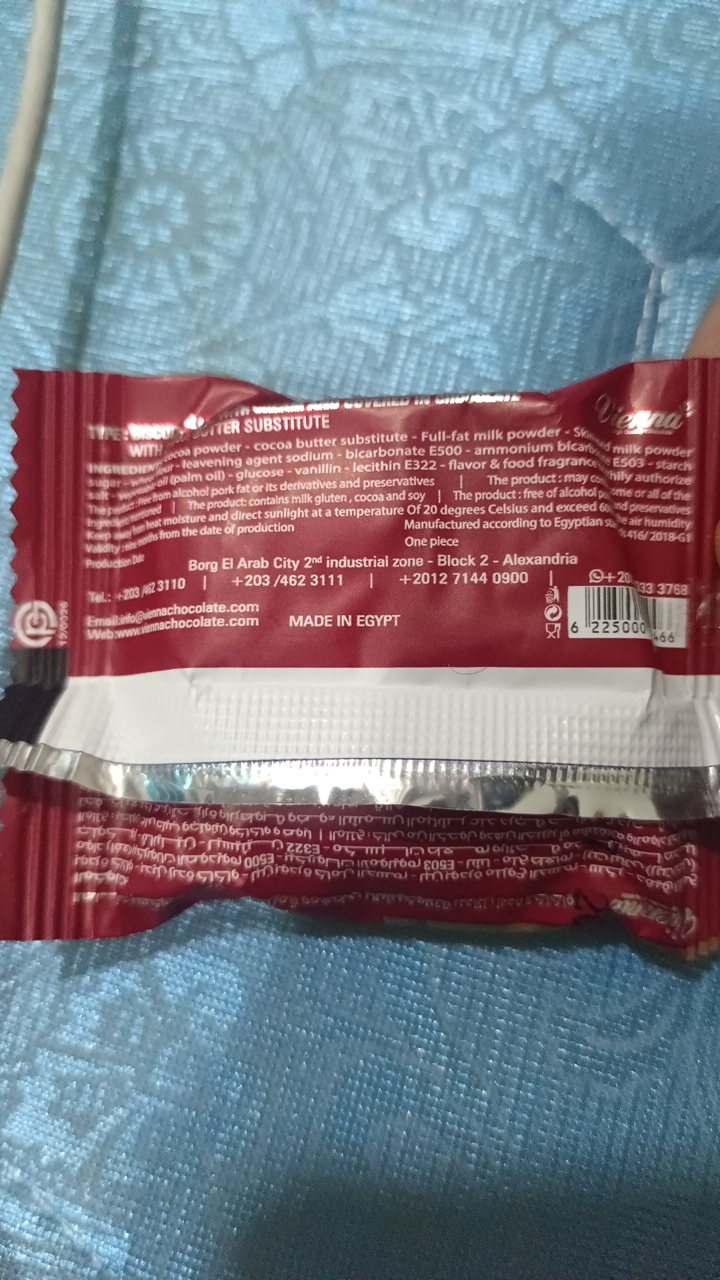
Barcode: 295400110033
biscuit
HALAL
📝 Reason: The product is considered Halal as none of the Haram E-codes or ingredients were found. However, some ingredients like cocoa butter substitute, vanillin, and flavor & food fragrance are marked as Doubtful due to potential non-Halal sources. It is recommended to verify these ingredients’ sources for complete assurance.
🏷️ Category: Biscuit
📄 Certificates: Made In Egypt, One Piece
Ingredients:
Details
Understanding the Halal Status of Biscuit
The quest for Halal products has become increasingly important for consumers of all backgrounds, especially for those who adhere to Islamic dietary laws. In this post, we will examine the Halal status of the product ‘Biscuit’ and delve into its ingredients to ensure that you make informed choices.
Is Biscuit Truly Halal?
The Biscuit in question has a Halal status confirmed, primarily because none of the Haram E-codes or ingredients are present. However, some ingredients such as cocoa butter substitute, vanillin, and flavor & food fragrances raise certain doubts due to their ambiguous nature. It is always advisable to verify the sources of these ingredients for complete assurance.
Ingredients Breakdown
Here, we will analyze each ingredient used in Biscuit, along with their respective Halal statuses.
- Cocoa Powder: Generally considered Halal as it is derived from cocoa beans. [Source](https://www.islamicfinder.org/news/what-is-halal-food-a-guide-to-muslim-dietary-laws/)
- Cocoa Butter Substitute: Marked as Doubtful due to potential non-Halal sources unless specified. [Source](https://www.halalwatchworld.org/halal-ingredients)
- Full-Fat Milk Powder: Halal as it’s derived from milk, which is permissible. [Source](https://www.islamicfinder.org/news/what-is-halal-food-a-guide-to-muslim-dietary-laws/)
- Skimmed Milk Powder: Halal as it’s also derived from milk. [Source](https://www.islamicfinder.org/news/what-is-halal-food-a-guide-to-muslim-dietary-laws/)
- Sugar: Halal as it comes from plant sources. [Source](https://www.islamicfinder.org/news/what-is-halal-food-a-guide-to-muslim-dietary-laws/)
- Wheat Flour: Halal as it’s derived from wheat, which is permissible. [Source](https://www.islamicfinder.org/news/what-is-halal-food-a-guide-to-muslim-dietary-laws/)
- Palm Oil: Halal as it’s derived from plants. [Source](https://www.islamicfinder.org/news/what-is-halal-food-a-guide-to-muslim-dietary-laws/)
- Glucose: Halal as it is plant-derived. [Source](https://www.islamicfinder.org/news/what-is-halal-food-a-guide-to-muslim-dietary-laws/)
- Vanillin: Considered Doubtful due to potential non-Halal sources unless specified. [Source](https://www.halalwatchworld.org/halal-ingredients)
- Lecithin (E322): Halal as it typically comes from soy or egg, permissible by Halal standards. [Source](https://www.foodchemadditives.com/additives/E322)
- Flavor & Food Fragrance: Doubtful, some may come from non-Halal sources unless verified. [Source](https://www.halalwatchworld.org/halal-ingredients)
- E503: Halal as it is derived from permissible sources like ammonia and carbon dioxide. [Source](https://www.foodchemadditives.com/additives/E503)
- Starch: Halal as it comes from plant sources. [Source](https://www.islamicfinder.org/news/what-is-halal-food-a-guide-to-muslim-dietary-laws/)
- Salt: Halal as it’s a mineral. [Source](https://www.islamicfinder.org/news/what-is-halal-food-a-guide-to-muslim-dietary-laws/)
Conclusion
In conclusion, while the Biscuit is primarily Halal, certain ingredients like cocoa butter substitute, vanillin, and flavor & food fragrance warrant further investigation for ultimate assurance. As consumers, we must be educated about our food choices, understanding not just the visible ingredients but also the hidden components. The status of our food can impact our beliefs and practices, making it essential to ensure we are consuming what aligns with our values. Always check labels and consult certified sources for clarity.
Certified Origin
This Biscuit is made in Egypt and could come with Halal certifications, emphasizing the importance of brand integrity when making your purchase.
